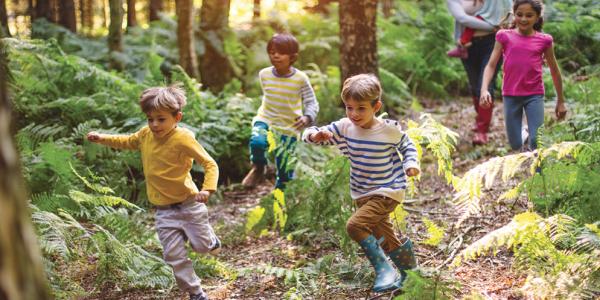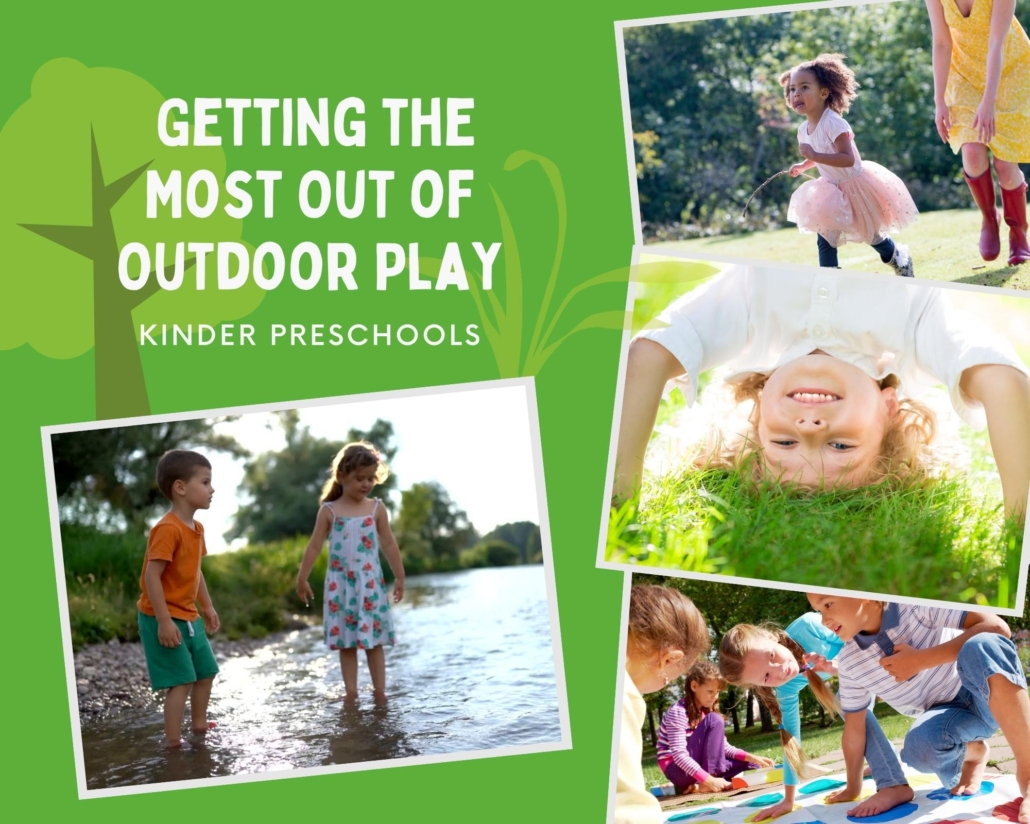Getting the Most Out of Outdoor Play
Being outdoors can be extremely beneficial to your child’s growth and curiosity. Let’s learn more about how exploring the great outdoors can help them develop by trying these tips.
Did you know that trees, plants, and bushes provide so many different types of sensory and imaginative play for children? These outdoor materials become the props and backdrops for your child to explore. Think about a field of sunflowers or a garden arch for example, these can make an excellent summertime play space.
Consider the thought of playing in natural structures, like an evergreen forest or a bunch of willow trees. Items all around the natural landscape like plants, rocks, and sticks can all be used to incorporate interesting and colourful building tools to make the space just like a fairytale in real life!
Speaking of small objects, anything that is easy for a child to move or manipulate are useful when considering dramatic play and offer more flexibility than fixed objects. Think about the simple stick… in the right hands it can be anything from a wand or sword to a fishing pole!
Open-ended materials like these can be worked into so many different fun and exciting outdoor play ideas. Not all outdoor items need to be natural. What about that old car tire… the perfect swing or stack crates to build a castle then tear it down for something new.
Enclosed or semi-enclosed structures, also called “secret” places, offer your child a unique opportunity to experience privacy while playing. Strategically placed greenery walls or ceiling enclosed areas give your child the sense of aloneness that cultivates their creativity. Open outdoor floor plans create the energy of a stage for your child to act out all sorts of adventures.
Now let’s consider defined spaces… open or large areas where your child can explore more gross motor activities – which involves the movement of the larger muscles like arms, legs, and the torso. Things like riding a bike, running around in a field of flowers, playing football in a grassy heath, and quiet spaces help to support social play for your young one.
Regardless of the environment, keep in mind that dramatic play is defined “as a type of play in which children assume various roles and act them out to engage the imagination, build confidence, and prepare children to tackle real life situations”.
To help encourage your child to engage in dramatic play with guidance by leaving out props or setting up their favourite movie scene. Encouraging your child to act out things that they might be fearful of is also useful, like a trip to the hairdresser, dentist or doctor might just make the next visit manageable.
Thoughtfully done and parent-supported dramatic play can lead children throughout their early years development and their life.




